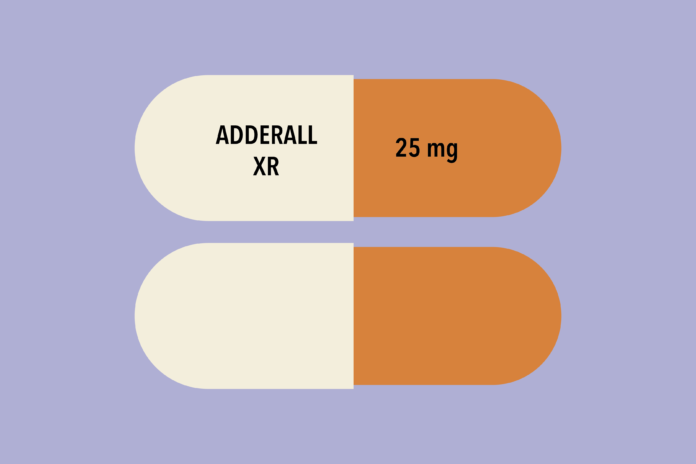Those prescribed medication for ADHD weigh in on controversy of pill, its presence in study habits
Third-year cognitive science major Claire Brandmeyer was diagnosed with Attention Deficit/Hyperactivity Disorder (ADHD) when she was in second grade and has been prescribed Ritalin or Vyvanse ever since. After transferring to UC Davis, Brandmeyer noticed the behavior of abusing focus drugs is far more normalized on UC Davis’ campus than at her community college.
“I definitely get asked more about whether or not I sell my medication here than I did when I was at community college,” Brandmeyer said.
After doing more research on the effects of these drugs, Brandmeyer decided that she no longer wants to rely on them in order to focus. Adderall and other focus drugs are all amphetamines, meaning they alter brain chemistry and function and can have negative side effects as a result. Brandmeyer is concerned that students don’t take into consideration the long-term effects of taking these drugs and are damaging their overall health.
“I went off my meds after learning what ADHD medication does neurologically,” Brandmeyer said. “There’s not enough awareness about the long-term effects of these drugs on the brain.”
ADHD is defined by the National Institute of Mental Health as “a disorder that makes it difficult for a person to pay attention and control impulsive behaviors.”
Approximately 9.4% of children ages two to 17 have been diagnosed with ADHD and among this population and 64% of this group took medication to control their symptoms, according to the Center for Disease Control and Prevention as of 2016.
ADHD can present challenges when it comes to being able to focus on assignments or maintain attention while taking exams. Diagnosed students take medication in order to elongate their attention spans and in the hopes of being put on an equal playing field with their peers.
Some undiagnosed students, however, have found that taking medication used to treat the effects of ADHD, such as Adderall, Ritalin or Vyvanse, gives them a leg-up academically. As a result, it has become a norm for students without ADHD to use these drugs in order to study for midterms and finals or complete large assignments.
Due to the high pace and pressure of the quarter system, as well as the demands of maintaining a healthy work-life balance, some students find that there are simply not enough hours in the day to achieve their goals. Therefore, the question must be asked: is abusing focus/study drugs a justified behavior? If so, what can the university do to ease the stressors which instigates this abuse?
Third-year animal science and management major Olivia Sinclair has seen a consistent pattern of this abuse among peers and classmates since coming to college. She feels that this issue is especially prevalent among students in Science, Technology, Engineering and Math (STEM) fields.
“I would say that the majority of the people I have met in STEM do Adderall whether they are prescribed or not prescribed,” Sinclair said. “There are so many people out there who are buying and selling, it’s just so easy to get a hold of.”
Sinclair believes this behavior is somewhat justified because there aren’t enough alternate options that allow students to choose to not abuse focus drugs. She feels that intense academic pressure combined with the pressure to maintain one’s well-being leave students in need of assistance to stay afloat.
“I think the problem is the way UC Davis approaches teaching, especially STEM,” Sinclair said. “There is so much information given in such a short time span that by the time finals rolls around, you have to extract so much information all at once. Sometimes, the only way to do that and get a good grade is to take Adderall.”
Regardless of a prior struggle with focus medication, Brandmeyer empathizes with students who abuse focus drugs. She feels that the culture and expectation to achieve perfection normalizes use of these medications so that students can wear a facade and appear as if they’re not struggling personally or academically.
“When you’re on a quarter system, and the expectation is to be happy all the time, have friends and get straight A’s, people find that focus drugs are the only way they can get through,” Brandmeyer said. “It just feels like there are never enough hours in the day.”
Sinclair believes this culture can be combated by a more applied, fieldwork-based teaching style. She argues that through learning by doing, stress will be minimized and students will learn in a more holistic way.
“The school needs to understand that growth doesn’t come from cramming a bunch of information,” Sinclair said. “The way people learn is through hands-on experience.”
Brandmeyer believes that the only way to combat this issue is by striking up a dialogue between students and administration. She feels that at this point in time, the administration is quick to criticize students’ use of focus drugs without acknowledging the roots of the problem.
“The amount of pressure that is held on students, and the lack of communication between the university and the students needs to change,” Brandmeyer said. “The university needs to recognize that school-related stress and anxiety are as detrimental to mental health as any other mental illness.”
Written by: Miki Wayne — features@theaggie.org




